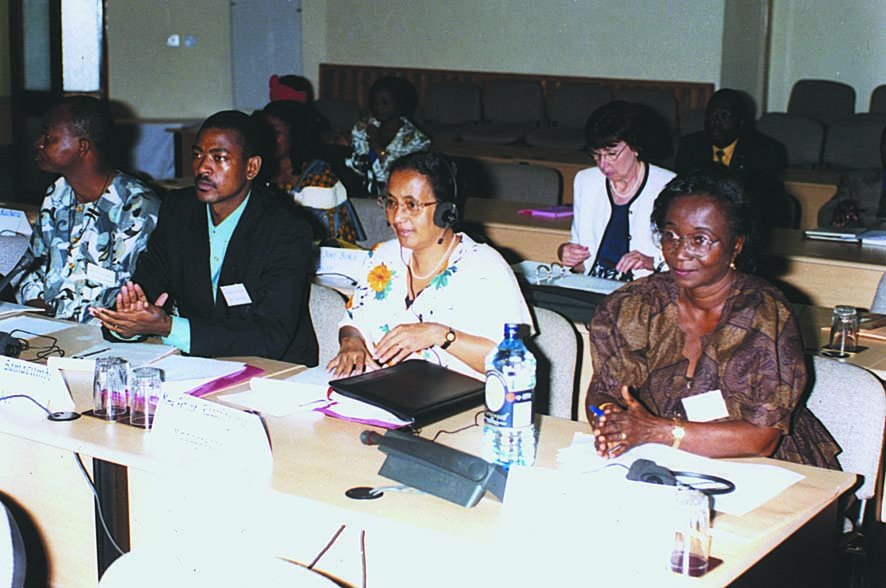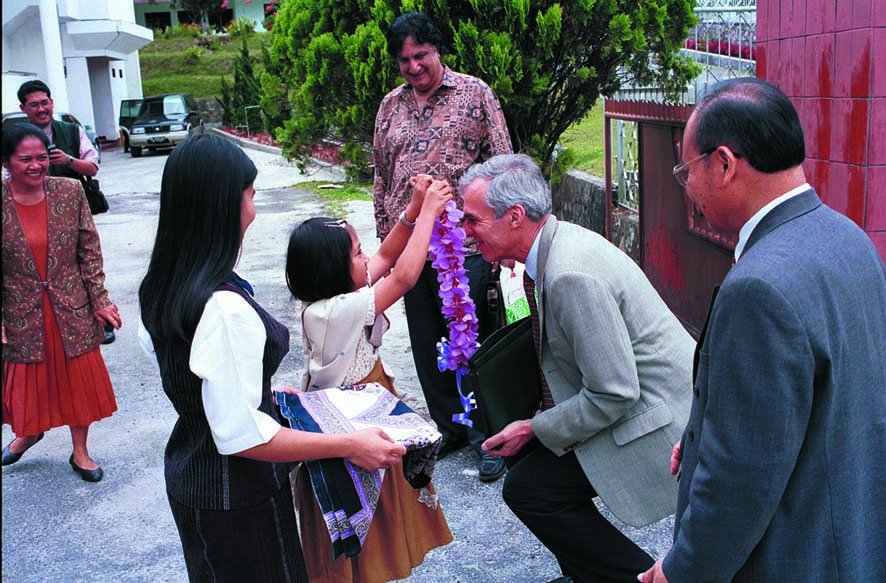
Late Archbishop Romero remembered
On 24 March, twenty years ago, Mgr Oscar Arnulfo Romero, archbishop of San Salvador, was slain as he was celebrating mass at a hospital with cancer patients.
On 24 March 2000, thousands of the faithful in churches around the world joined their brothers and sisters in El Salvador to remember the assassinated archbishop.
In a message to the people of El Salvador, WCC general secretary, Konrad Raiser wrote : "May the witness which Mgr Oscar Arnulfo Romero sealed with his own life continue to guide the church and the people of El Salvador in their effort to overcome violence and work towards a new social order built on justice and peace." | |
CPR Gets Interim General Secretary
The Conseil Protestant de Rwanda (CPR) now has an interim general secretary. Rev. Richard Murigande has been seconded to the CPR in response to an appeal made to the WCC by the heads of the CPR member churches.
The Rwanda situation has been a major WCC preoccupation since the genocide of 1994. It is in the spirit of the WCC's commitment to the churches in Rwanda and regional ecumenism that the WCC general secretary responded positively to the request. Murigande will devote 80% of his work schedule to the CPR and 20% to the WCC for one year (Jan-Dec. 2000).
Before his secondment, Murigande served as WCC secretary for African refugees (1987-1988), and later became regional secretary for Africa for the Commission of Inter-Church Aid, Refugee and World Service (CICARWS), a post he held for eleven years (1988-1999).
Healing Ministry in the Face of AIDS
Over thirty countries in Africa and Latin America have been benefiting from a WCC HIV/AIDS education programme. Local AIDS educators are using a training resource that is a blend of medical and theological perspectives, to encourage opinion leaders to tackle the problem positively, putting aside taboos or judgmental attitudes.
This programme is the expansion of a pilot project recently started in Zimbabwe and India because of the prevalence of HIV/AIDS in these countries. According to UNAIDS and WHO estimates, released in 1997, in Zimbabwe more than 25% of adults, representing 1.4 million of a population of 11 million, have contracted HIV/AIDS. In India, 0.8% of adults, representing 4.1 million of a population of 960 million, are affected.
Eight representatives from these two countries adapted the training material, which they used to equip trainers from the churches, church hospitals and the health desks of religious organizations. These trainers then conducted education programmes in their own communities. The WCC’s HIV/AIDS education programme is hoping to run six workshops at regional level and 84 at local level within twelve months.
Most of the work is being done through networks like the Association of Christian Lay Centres in Africa and the Latin American Council of Churches (CLAI) in South America.
The WCC is also working in partnership with MAP International (Medical Assistance Programme), UN/AIDS and other major training institutions and theological colleges in Eastern and Southern Africa to include HIV/AIDS education in their curriculum, equipping pastors and lay workers to support local communities in facing the AIDS pandemic. The idea, according to WCC's Mission and Evangelism staff Dr Manoj Kurian, "is to help the churches to recapture the healing ministry".
HIV/AIDS work is only part of wider WCC initiatives providing health education at community levels, encouraging primary health care, linking church health workers to other agencies and advocating fairer use of medical resources.
A study document, Facing AIDS - The Challenge and the Churches' Response, 1997, and an accompanying study folder, Facing AIDS, are available from the Health Desk of the Mission and Evangelism Team, WCC, P.O. Box 2100, 1211, Geneva 2, Switzerland.
|







